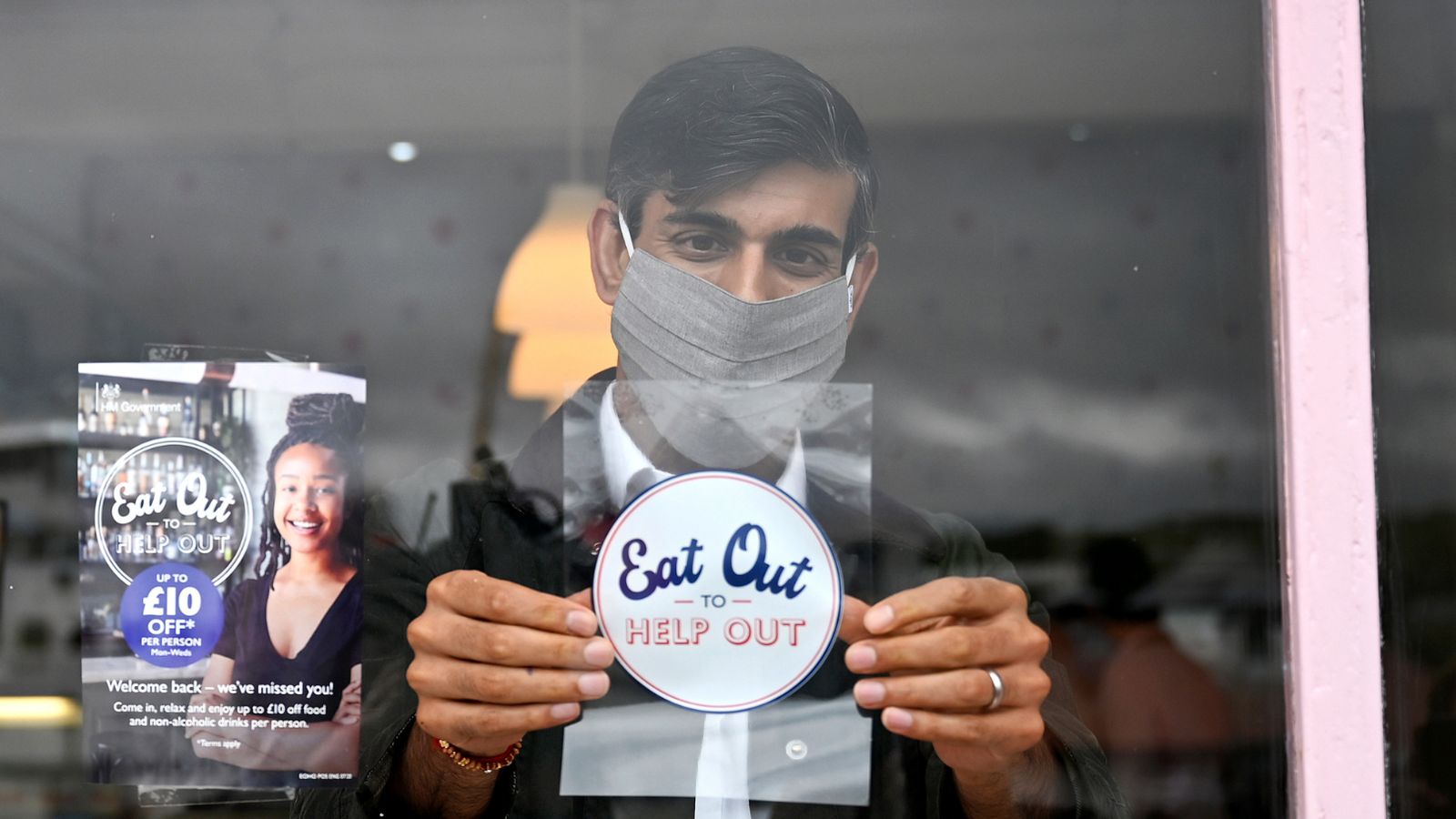Rishi Sunak has declined to rule out further measures similar to the Eat Out To Help Out scheme when the economy reopens after the latest lockdown.
Mr Sunak told Sky News that the government would look at a “range of things” to “get consumers spending again and people out and about”.
The Eat Out To Help Out discount scheme saw more than 100 million meals subsidised by the government at a cost of more than £500m during August.
It is credited for much of the economic revival seen in the summer after the first lockdown ended and latest GDP figures suggest the rebound faded after the scheme came to an end.
Responding to the data, the chancellor was asked by Sky’s economics editor Ed Conway whether he would consider reintroducing the discount scheme.
Mr Sunak said: “I won’t talk about specific measures but more broadly, I think it’s right that when we finally exit this, and hopefully next year with testing and maybe indeed vaccines as well, we’ll be able to start looking forward to getting back to normal.
“I think we’ll have to look at the economic situation then and see what’s the best form of our support, and we want to make sure that we get the economy going strongly coming out of this.
“We want to make sure that we support employment and support people going into jobs, we want all the people, who have sadly lost their jobs, we want to help them find new ones.
“We want to get consumers spending again and people out and about.
“So we’ll look at a range of things to see what the right interventions are at that time.”
The economy grew by a record 15.5% in the third quarter but economists think the latest lockdown will mean it shrinks again in the last three months of the year.
A revival of the Eat Out To Help Out scheme or similar intervention might be viewed as likely to help the devastated pub and restaurant trade get back on its feet.
However a Warwick University study of the original August initiative found that it was responsible for a “significant” rise in coronavirus infections.
The Treasury said it did not recognise the research and said other European countries had also experienced an uptick of COVID-19 irrespective of whether they introduced similar measures.


